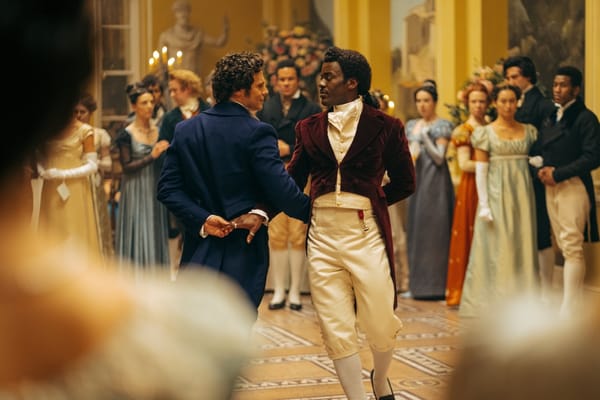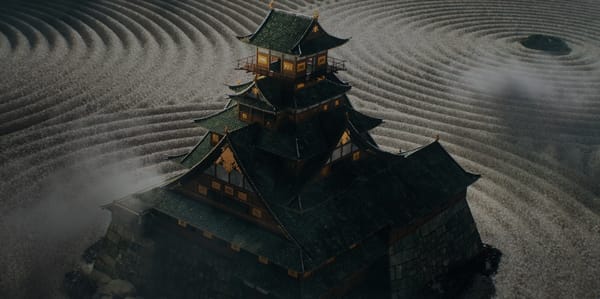Bang
You might not expect, for an episode called 'The Big Bang', to get perhaps the quietest season finale we've had since Doctor Who returned. No massive armies; just one Dalek, and not even a fully-functioning one. Oh, alright, and the potential end of the entire universe.
So, reality as we know it is ending, and Earth is the last light to be snuffed out. This means the planet's going a little peculiar, with history turned on its head, and no stars in the sky. The weirdness of this situation is played with a little, but perhaps not quite as much as I'd have liked. Still, it does mean we get one of the more wonderful pre-credits sequences in living memory. And the longest! At five minutes, Doctor Who is starting to rival Alias. It's odd: for some reason I always feel like I've gotten good value with a long pre-credits section, even though I know perfectly well that that time is coming off my total.
After some very sneaky time travel that presumably is only possible when the universe = the Earth and time runs out at 2010 AD, we get a run-around a museum, some excellent jokes, some top notch exterminations, and a touching sacrifice.
I've always wanted them to try a nice, quietly awesome finale, and this is it, I guess, Moffat having gotten all the silly and not-quite-logical stuff out of his system in part one. The story is nice and simple this week (as simple as a story about the entire universe erasing itself can be) and there's plenty of space for the characters to do lots of interesting things.
We get to see the Doctor dying, somewhat more convincingly than Tennant was allowed to do in 'The End of Time'. We get tantalising hints at River Song's nature, as she gets more and more interesting, and more and more like a female Captain Jack. Adding to her gradually increasing sense of mystery is a beautiful 'reversed' musical theme as she says her goodbyes to her [love/nemesis/husband/father/prey] (delete as applicable in 2011). We get some more awesomeness from the peculiar Amy Pond, we get some tremendously moving heroism from Rory (I can't believe I used to think he was boring). We get a stone Dalek, we get an excellent fez subplot, and we get slightly too many repetitions of "The boy/girl who [insert understatement here]" for it to remain poetic.
Crucially, there's also a quality cunning plan from the Doctor to finish the story off: one that you can actually understand and be satisfied by. I can't tell you how much I appreciate that.
I can, however, tell you how much I appreciate Matt Smith. I've said this about other Doctors before, and no doubt I'll say it again like the tramp I am, but he is my favourite Doctor. He's been amazing all season, and he caps it off in tremendous style, especially as he tells a little girl a bedtime story before walking to his oblivion. Well, that and his crazy dancing.
With a large chunk of the story consisting of running around a museum, the episode might have looked cheap; luckily the direction for these sections is fantastic and the museum generally looks fantastic. Perhaps more cheap-looking is that the TARDIS infinitely exploding is represented by a standard sci-fi ball of light rather than anything more interesting. The Doctor's quiet end after his story is also quite underplayed, but in this case works very well, eschewing sentiment in favour of a poignant silhouette.
As I said: a quiet ending. But a damn moving one. I'm developing a theory that the best finales get the world-saving out of the way first, and then follow the heroes as they deal with the consequences and attempt to save themselves. 'The Big Bang' is a fine example of why that's not a bad old structure.


